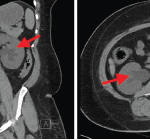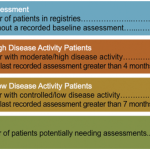Besides Groundhog Day, this February 2 will stand for something that many believe is long overdue for its own day of recognition. The Rheumatoid Patient Foundation (RPF), a nonprofit dedicated to helping patients with rheumatoid arthritis, has announced the first annual Rheumatoid Awareness Day, which will be held on February 2, 2013, and every year thereafter.
Kelly Young, the RPF’s founder, says that since rheumatoid disease is not just a type of arthritis, the general public awareness of the disease needs some enhancement. “We like to say that arthritis is a symptom of rheumatoid disease; it’s not what it is. It’s not exactly accurate to name the disease by one symptom,” Young said in an interview.
Young believes that getting the word out about how rheumatoid arthritis is often misunderstood will go beyond benefitting patients. “I think increased awareness of the disease will benefit rheumatologists as it benefits patients, because most people are not diagnosed early,” she said. “So increased awareness will lead to earlier referrals, and it will probably lead to eventually increased research dollars and much better responses within the government.”
Young cites several factors for choosing February 2 for the new annual awareness day. “We had decided to focus on February because of it being heart disease month and our desire to change the perception of the disease from being a hand disease with only joint symptoms to being a chronic, systemic disease that affects mortality, and often because of heart disease that’s actually related to [rheumatoid] disease itself,” Young said.
The RPF will be hosting a series of online discussions on Friday, February 1, and Saturday, February 2, featuring rheumatologists John Davis, III, MD, research chair of the division of rheumatology at the Mayo Clinic in Rochester, Minn., and Jeffrey Curtis, MD, MPH, assistant professor of medicine and director of the arthritis clinical intervention program at the University of Alabama, Birmingham. Through the use of social media and grassroots outreach efforts online and in local communities and government, rheumatologists, patients, and their families are working to spread the word about the prevalence of rheumatoid arthritis in society.
“This is long overdue,” Young said. “It’s an obvious need because this is something that’s been done and has been useful for many other conditions that are similar or as serious as this one. With this disease being kind of a common disease, it’s long overdue that we have acknowledgement and awareness and patients bring voice to their experience and to what their needs are.”

